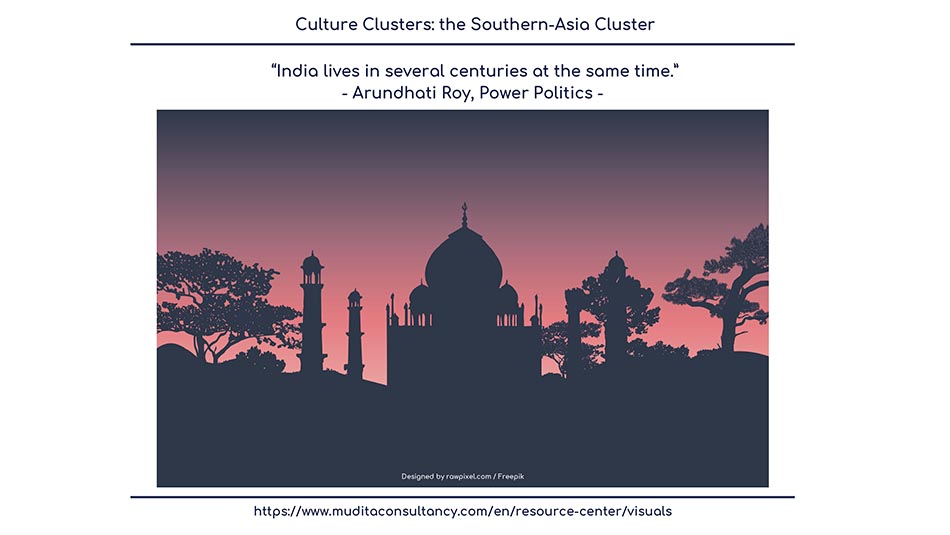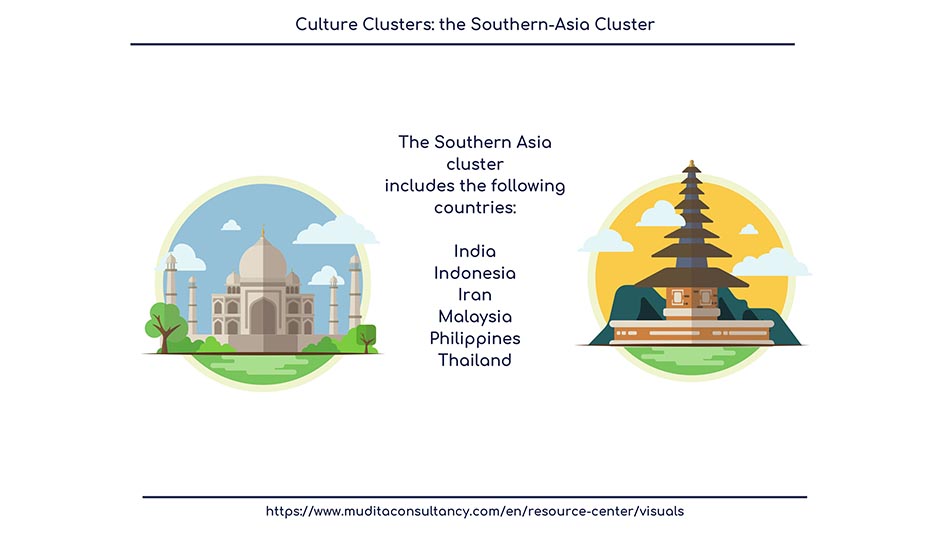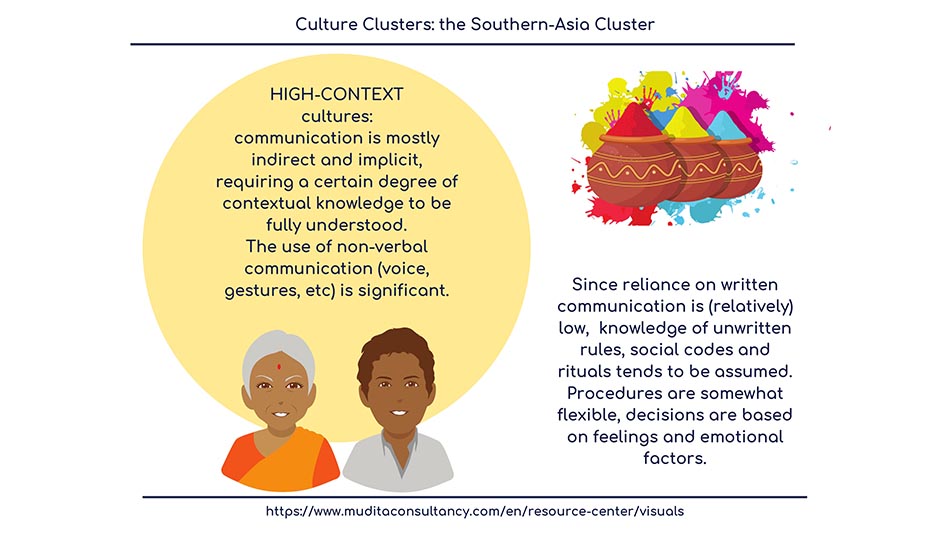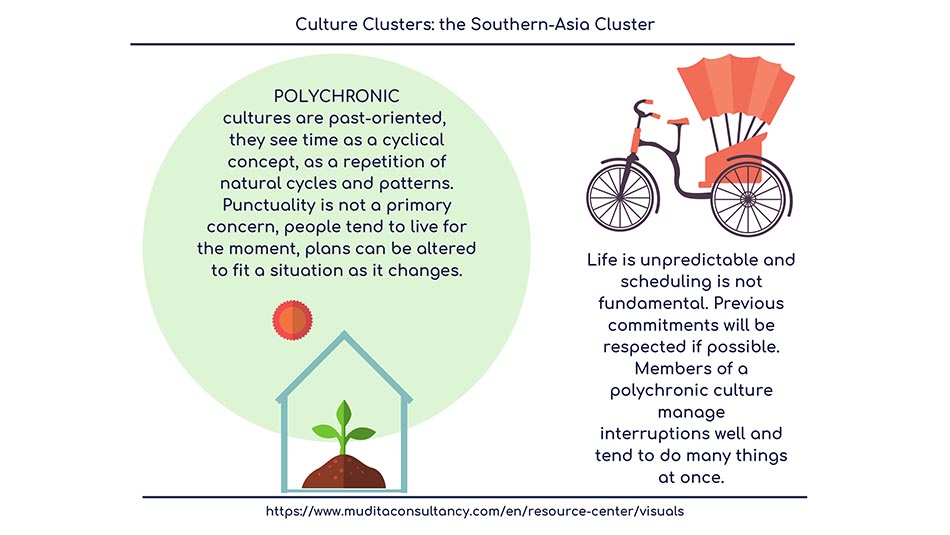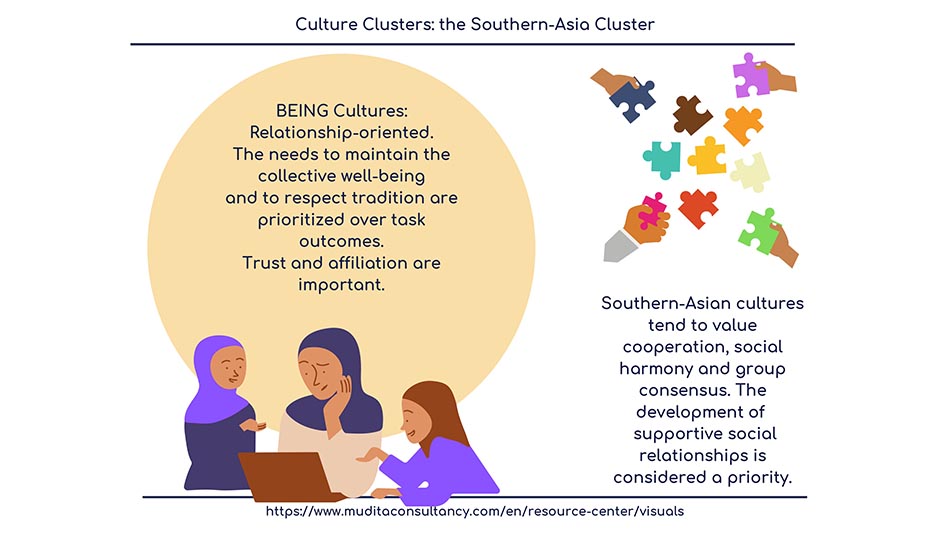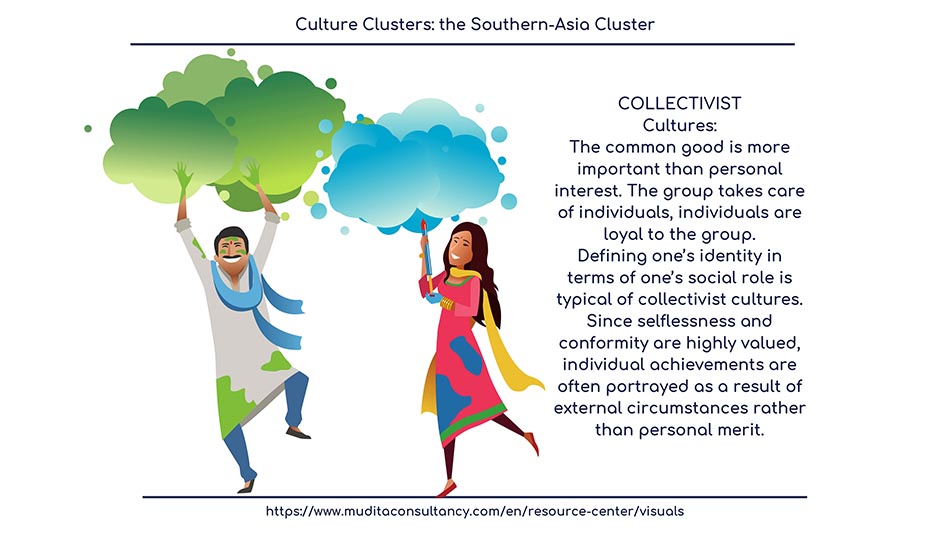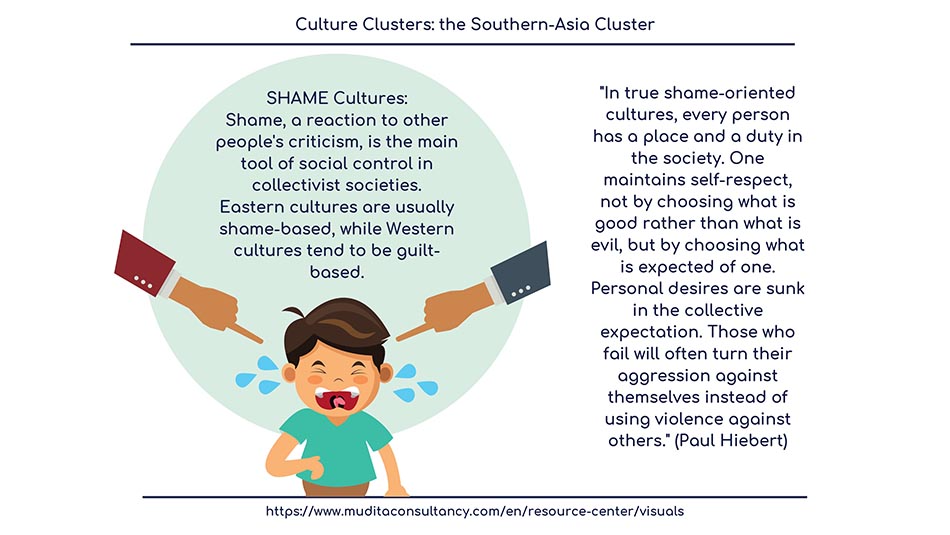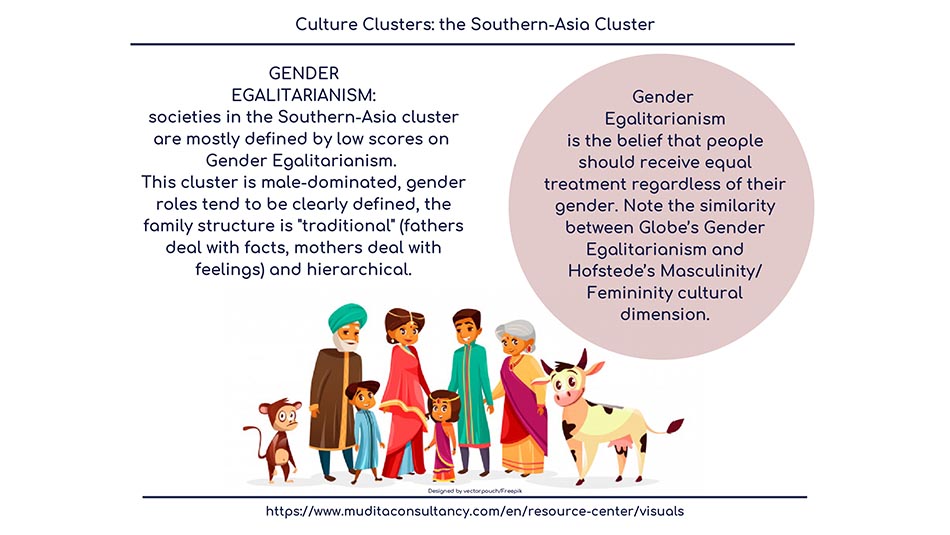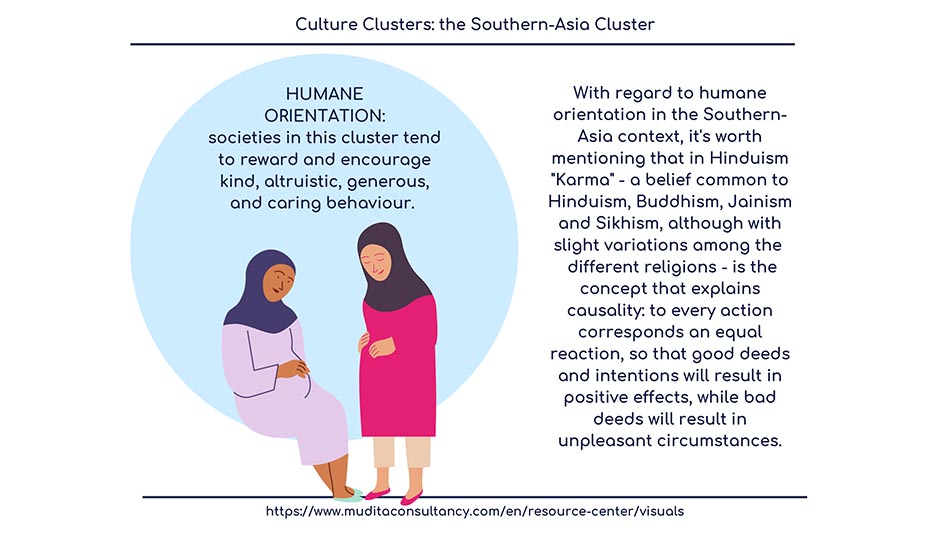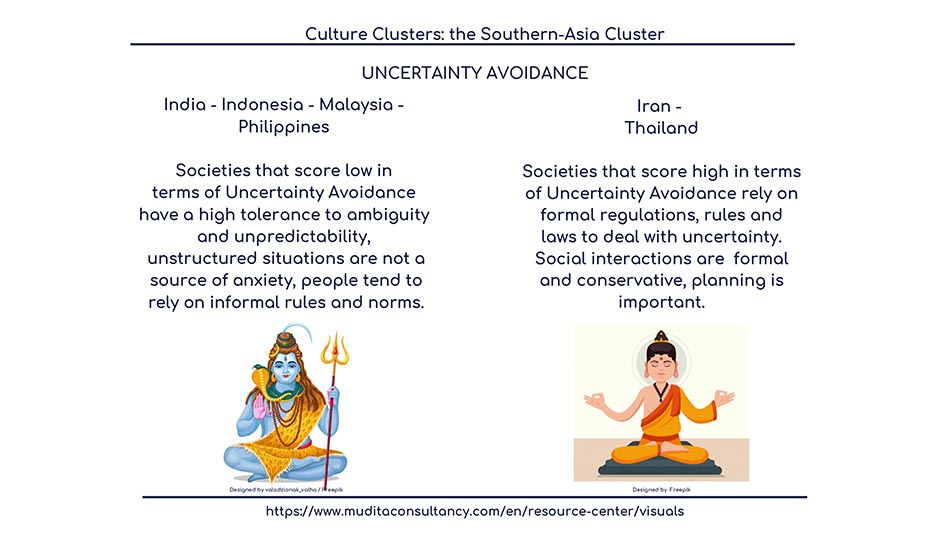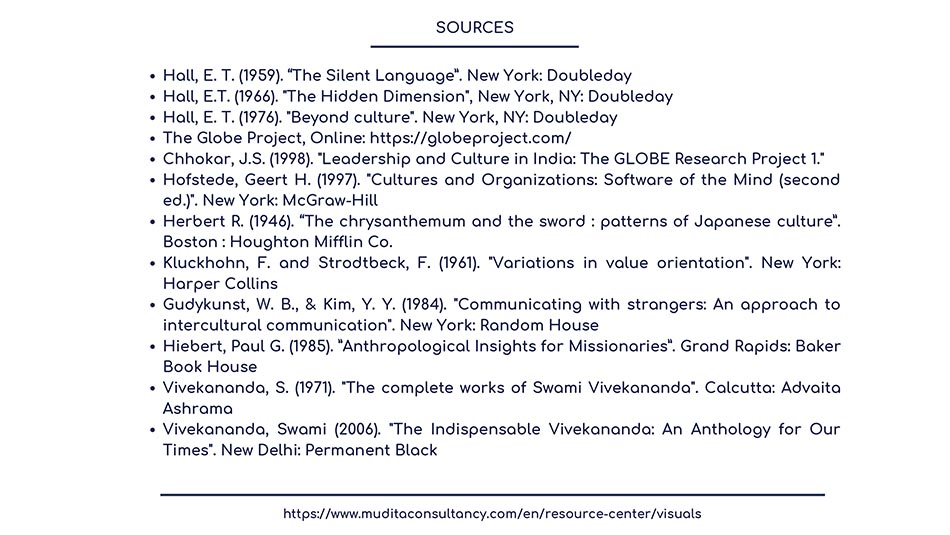The Southern Asia Cluster
India lives in several centuries at the same time.
- Arundhati Roy, Power Politics -
After the Anglo- and the Confucian-Asia cluster, this series about effective global leadership continues with the Southern-Asia cluster.
- How important is hierarchy in Indian business culture?
- What does the Filipino concept of “Pakisisama” (a term that comes from two Tagalog words, “sama”, to go along with, and “paki”, please, kindly) mean, and what is its impact on organizational culture in the Philippines?
- What are some common challenges of doing business in Thailand?
- What do you need to know about Malaysian work culture?
Let’s find out.
The Southern-Asia cluster - that includes India, Indonesia, Iran, Malaysia, Philippines, and Thailand - is a complex business environment that strives for modernity (with regard to “societal values”, the criteria used to establish how things should be, Southern-Asia appears to desire higher levels of both Performance- and Future Orientation: the actual score for Future Orientation, for instance, is 3.98, while the desired score is 5.86. It’s worth noting that the average desired GLOBE group score is 5.44.) while it keeps holding tradition in high regard (Southern Asia societies, family oriented and highly hierarchical, tend for example to emphasize filial piety and familial support systems).
The shame-based Southern-Asia cluster is characterised by:
- an implicit and indirect communication style that relies on contextual knowledge to make messages understandable (high-context cultures);
- a relatively low future orientation (monochronic time);
- high levels of in-group collectivism (also defined as “family collectivism”, the extent to which individuals identify with and prioritize the group they belong to), a being orientation;
- a being orientation (based on “moral relativism”, the idea that moral principles are culture-bound: being cultures tend to more more concerned with maintaining the collective harmony than they are with pursuing the “truth”. See article on the cultural differences between East and West for clarification son this last point. NOTE: the article was written specifically with the Confucian-Asia environment in mind, but being cultures share some common traits regardless of the cluster they belong to);
- strong and well-defined power dynamics, even though societies that belong to this cluster express a desire for a more even distribution of power and resources;
- a conflictual relationship with ambiguity and unpredictability (Uncertainty Avoidance. This cluster as a whole appears to have a wish for more rules and regulations to reduce the possibility of uncertain future outcomes);
- a low level of gender egalitarianism (the belief that people should receive equal treatment regardless of their gender);
- a high humane orientation (societies in this cluster tend to reward and encourage kind, altruistic, generous, and caring behaviour).
In the Southern-Asia cluster people tend to value leaders who are charismatic (inspirational/visionary/decisive), team-oriented and humane oriented (note the similarity with the Confucian-Asia cluster with regard to leadership scores): the most effective leader is therefore expected to build functional and cohesive teams.
It most be observed that while Self-Protective Leadership (the self-conscious style that focuses on “face-saving”, on the safety and protection of the leader) is seen in a negative light in most other cluster - with an average Globe group score of 3.42 - in Southern-Asia is deemed to have no impact on effective leadership skills (Southern-Asia score, 3.83).
***
Related posts:
- The Sub-Saharan Africa Cluster
- The Middle East Cluster
- The Latin Europe Cluster
- The Germanic Europe Cluster
- The Eastern Europe Cluster
- The Nordic Cluster
- The Latin America Cluster
- The Confucian-Asia Cluster
- The Anglo Cluster
***
SOURCES:
- House, R. J., Hanges, P. J., Javidan, M., Dorfman, P. W., & Gupta, V. (2004). "Culture, leadership, and organizations: The GLOBE study of 62 societies". CA: Thousand Oaks
- Hall, E. T. (1959). “The Silent Language”. New York: Doubleday
- Hall, E.T. (1966). "The Hidden Dimension". New York: Doubleday
- Hall, E. T. (1976). "Beyond culture". New York, NY: Doubleday
- The Globe Project, Online: https://globeproject.com/
- Hofstede, Geert H. (1997). "Cultures and Organizations: Software of the Mind". New York: McGraw-Hill
- Herbert R. (1946). “The chrysanthemum and the sword: patterns of Japanese culture”. Boston : Houghton Mifflin Co.
- Kluckhohn, F. and Strodtbeck, F. (1961). "Variations in value orientation". New York: Harper Collins
- Gudykunst, W. B., & Kim, Y. Y. (1984). "Communicating with strangers: An approach to intercultural communication". New York: Random House
- Hiebert, Paul G. (1985). ”Anthropological Insights for Missionaries”. Grand Rapids: Baker Book House
- Vivekananda, Swami (2006). "The Indispensable Vivekananda: An Anthology for Our Times". New Delhi: Permanent Black
Disclosure: This post contains affiliate links. If you decided to buy any of the products listed here, I would earn a small commission (at no additional cost to you).
***
